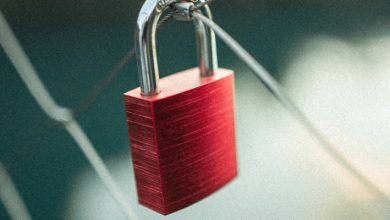How to Stay Safe When Using DeFi Platforms

- Understanding the risks associated with DeFi platforms
- Best practices for securing your DeFi assets
- Tips for avoiding common scams on DeFi platforms
- The importance of using secure wallets with DeFi platforms
- How to identify and report suspicious activity on DeFi platforms
- Ensuring the security of your personal information on DeFi platforms
Understanding the risks associated with DeFi platforms
When using DeFi platforms, it is crucial to understand the risks associated with them. While decentralized finance offers exciting opportunities for users to earn high returns on their investments, it also comes with certain vulnerabilities that users need to be aware of in order to protect their funds.
One of the primary risks of using DeFi platforms is smart contract vulnerabilities. Smart contracts are self-executing contracts with the terms of the agreement directly written into code. However, if there are bugs or flaws in the code, hackers can exploit these vulnerabilities to steal funds from the platform. It is essential to thoroughly research the smart contracts used by DeFi platforms and only invest in reputable projects with a proven track record of security.
Another risk to consider when using DeFi platforms is the potential for liquidity issues. DeFi platforms rely on liquidity providers to ensure that users can easily trade their assets. However, if there is a lack of liquidity, users may find themselves unable to access their funds when they need them. It is important to monitor the liquidity of a DeFi platform before making any significant investments to avoid getting locked into a position with no way out.
Additionally, users should be cautious of rug pulls and exit scams on DeFi platforms. Some malicious actors may create fake projects with the intention of luring investors in, only to disappear with their funds once a significant amount of money has been invested. To protect yourself from these types of scams, always do thorough research on the team behind a project and look for red flags such as anonymous developers or unrealistic promises of high returns.
By understanding the risks associated with DeFi platforms, users can take proactive steps to protect their investments and minimize the chances of falling victim to malicious actors. With proper due diligence and a cautious approach, users can safely navigate the world of decentralized finance and take advantage of the opportunities it has to offer.
Best practices for securing your DeFi assets
To ensure the security of your DeFi assets, it is crucial to follow best practices when using DeFi platforms. One of the most important steps you can take is to always use a secure wallet to store your assets. Make sure to use a hardware wallet or a well-established software wallet with strong security features. Additionally, enable two-factor authentication (2FA) on your accounts to add an extra layer of security.
When interacting with DeFi platforms, be cautious of phishing attempts. Always double-check the URL of the website you are visiting and never click on suspicious links. It is also recommended to use a separate computer or device for DeFi transactions to minimize the risk of malware infections.
Furthermore, keep your private keys secure and never share them with anyone. Your private keys are the access codes to your assets, so it is crucial to keep them safe. Consider using a hardware wallet to store your private keys offline for added security.
Regularly monitor your accounts and transactions for any unauthorized activity. Set up alerts for large transactions or account changes to quickly identify any potential security threats. By staying vigilant and following these best practices, you can help protect your DeFi assets from theft and unauthorized access.
Tips for avoiding common scams on DeFi platforms
When using DeFi platforms, it is essential to be aware of common scams that can occur in the decentralized finance space. By following these tips, you can protect yourself from falling victim to fraudulent schemes:
- Research the platform: Before using a DeFi platform, take the time to research its reputation and reviews from other users. Look for any red flags or complaints that may indicate potential scams.
- Avoid phishing attempts: Be cautious of unsolicited emails or messages asking for your personal information or login credentials. Always double-check the URL of the platform to ensure you are on the legitimate site.
- Use secure wallets: Store your funds in a hardware wallet or a reputable software wallet to minimize the risk of hacks or theft. Avoid sharing your private keys with anyone.
- Verify smart contracts: Before interacting with any smart contracts on a DeFi platform, verify the code to ensure it is secure and has been audited by reputable third parties.
- Be wary of high-yield investments: If an investment opportunity promises unrealistically high returns, it is likely too good to be true. Exercise caution and do not invest more than you can afford to lose.
By staying vigilant and following these tips, you can reduce the likelihood of falling victim to scams on DeFi platforms and safeguard your assets in the decentralized finance ecosystem.
The importance of using secure wallets with DeFi platforms
When engaging with DeFi platforms, it is crucial to prioritize security at all times. One of the most important aspects of staying safe in the DeFi space is using secure wallets to store your assets. Secure wallets help protect your funds from malicious actors and ensure that only you have access to your digital assets.
By using secure wallets, you can mitigate the risk of unauthorized access to your funds and prevent potential losses. These wallets utilize advanced encryption techniques to safeguard your private keys and provide an extra layer of security when interacting with DeFi platforms.
When selecting a wallet for your DeFi activities, opt for reputable options that have a proven track record of security. Look for wallets that offer features such as multi-signature authentication, hardware wallet integration, and regular security audits to ensure the highest level of protection for your assets.
Remember, the security of your digital assets is paramount when participating in DeFi platforms. By using secure wallets, you can significantly reduce the risk of theft and unauthorized access, allowing you to transact with peace of mind in the ever-evolving DeFi ecosystem.
How to identify and report suspicious activity on DeFi platforms
When using DeFi platforms, it is crucial to be vigilant and aware of any suspicious activity that may occur. Here are some tips on how to identify and report such activity:
- Monitor your account regularly for any unauthorized transactions or changes in your balances.
- Be wary of any requests for personal information or login credentials, as legitimate platforms will never ask for this information.
- Look out for any unusual behavior on the platform, such as sudden changes in interest rates or unexpected downtime.
- If you suspect any suspicious activity, report it to the platform immediately. Most platforms have dedicated channels for reporting such incidents.
- Provide as much detail as possible when reporting suspicious activity, including timestamps and any relevant transaction IDs.
By staying alert and reporting any suspicious activity promptly, you can help protect yourself and other users from potential security threats on DeFi platforms.
Ensuring the security of your personal information on DeFi platforms
When using DeFi platforms, it is crucial to ensure the security of your personal information. Here are some steps you can take to protect yourself:
- Use a strong, unique password for each DeFi platform you use. Avoid using the same password across multiple platforms, as this can make it easier for hackers to access your accounts.
- Enable two-factor authentication (2FA) whenever possible. This adds an extra layer of security to your accounts, making it more difficult for unauthorized users to gain access.
- Avoid sharing sensitive information, such as your private keys or seed phrases, with anyone. Keep this information secure and only share it when necessary.
- Regularly monitor your accounts for any suspicious activity. If you notice anything out of the ordinary, such as unauthorized transactions, take immediate action to secure your accounts.
- Consider using a hardware wallet to store your cryptocurrencies securely. Hardware wallets are offline devices that are not connected to the internet, making them less vulnerable to hacking attempts.



